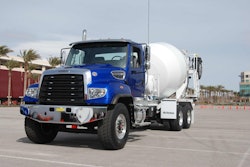Trucking organizations have filed briefs supporting the American Trucking Associations’ request that the U.S. Supreme Court review a court’s ruling regarding Port of Los Angeles trucking concession requirements. The court has not indicated if it will grant the association’s Dec. 22 request to hear the case.
Last month, the Owner-Operator Independent Drivers Association, National Industrial Transportation League and Harbor Trucking Association filed amicus, or friend of the court, briefs in favor of ATA’s bid for the high court to review the 9th Circuit ruling issued last September.
The September decision overturned the district court’s upholding of the most contentious component of the port’s trucking concession requirements, which would have required truckers serving the port be carrier employees, not owner-operators. However, it affirmed other port trucking concession requirements regarding off-street parking, placards, truck maintenance and carrier proof of financial responsibility.
ATA had argued the 1994 Federal Aviation Administration Act preempts the port from enforcing the concession agreement. According to the act, states and state political subdivisions “may not enact or enforce a law, regulation or other provision having the force and effect of law related to a price, route or service of any motor carrier … with respect to the transportation of property.”
However, the court held port officials could impose these rules because it was acting as a “market participant” in its capacity as a “landlord,” rather than as a regulator.
Ports nationwide considering pursuing the Los Angeles program are following the case closely, making Supreme Court review key to clarifying the issue, according to amicus briefs. OOIDA asserted the court should overturn the ruling to discourage states and localities from attempting to follow the port’s lead to “create their own unique rules in areas already occupied by federal law under the guise of marketplace participation.”
The port’s response to ATA’s petition was filed Feb. 21.










